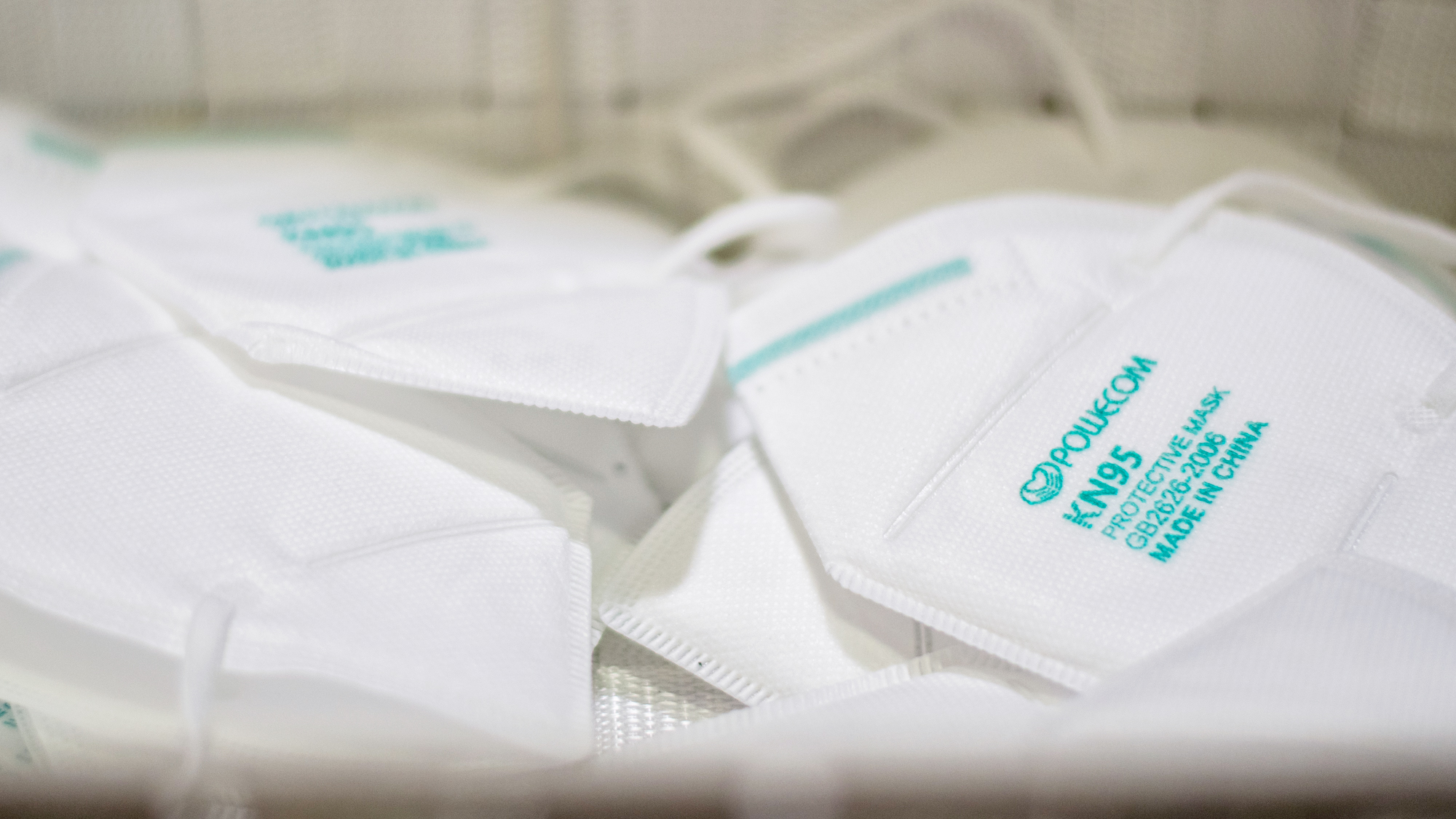When the University of Maryland announced last week classes will remain in person for the spring semester, its plans to address COVID-19 included a booster requirement, new mask policy and testing to return to campus. With the semester starting in a week, it has become increasingly unclear how this university’s administration can expect students to adhere to its confusing COVID-19 safety protocols.
A key policy for the upcoming semester is requiring KN95 masks in classroom settings. Despite this sweeping requirement, the university continues to only provide one free KN95 mask to each university community member. While KN95 masks can be used multiple times, they need to be replaced to remain effective and hygienic. The university provides no guidance on procuring additional KN95 masks, leaving students to meet the requirement at their own expense. This raises accessibility concerns, given the higher cost for KN95 masks, with prices up by almost 400 percent since November according to data from one Amazon price tracker.
The lack of guidance on obtaining KN95 masks, seems especially imprudent given the deluge of counterfeits on the market. A September 2020 analysis by health care advisory nonprofit ECRI found that 60 to 70 percent of imported KN95 masks don’t filter the 95 percent of particles they claim to. Without making proper KN95s more accessible, the university risks implementing a half-masked mandate at great cost to students.
The costs extend to COVID-19 testing. Maryland is no exception to the national testing shortage. Ahead of the holidays, Prince George’s County saw close to three-hour wait times to get tested for COVID-19. Rapid at-home coronavirus test kits have also been costly and hard to come by. Individuals can register for free federally distributed rapid tests starting on Jan. 19 — but they would have to wait over a week for their tests to arrive. By then, spring classes will have already begun. This raises concerns on how the university expects all students to get tested for COVID-19 before coming to campus.
But the university’s self-described “testing requirement” falls short of being a requirement.
In the latest campuswide email from University Health Center Director Spyridon Marinopoulos, the university clarified that its testing requirement did not require proof of test results. This can understandably cause confusion when other requirements, such as the vaccine booster requirement, do require proof. A requirement without enforcement should not be called such. The university would be better served to honestly communicate its reliance on shared responsibility, instead of engaging in hollow dictation.
The sincerity of these policies is further diluted in a blend of inconsistency. After dining halls shifted to carry out in the last days of the fall semester, the university has not announced plans for the spring semester. If last semester is any indication, however, dining halls could remain dine in only, in favor of Anytime Dining. The university has cited the environmental impact of carry out, program cost concerns and creating community experiences as support for the Anytime Dining model. At the very least, the university should provide flexibility to students who are concerned about eating in dining halls operating at full capacity. Otherwise, the university would be signaling to students that its COVID-19 safety policies only go so far as to limit costs for itself.
At a time of great uncertainty, one thing students should not have to be uncertain about is the university’s commitment to its precautionary measures. Without clear communication and support for broad policies, the university merely makes a gambit to save itself from legal and financial jeopardy, leaving students agonized over costs, safety and the merits of “requirements.” It also raises questions on how much additional risk is mitigated on a campus that is already 98 percent vaccinated and required to receive a booster for the upcoming semester. Students deserve clarity from the university administration — not sanctimony.



